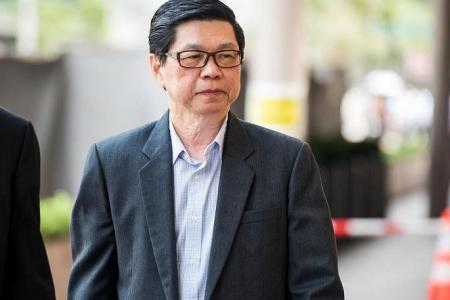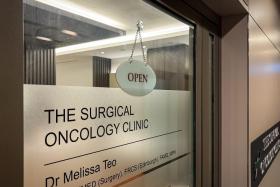GP cleared of rape fails to stop trial evidence from being used in disciplinary inquiry
A general practitioner who was acquitted of raping a patient in 2020 has failed in his bid to prevent evidence at his criminal trial from being used in ongoing disciplinary proceedings.
In a novel case, the High Court ruled on Tuesday (July 19) that the evidence is admissible even though it constituted hearsay.
Dr Wee Teong Boo faces a professional misconduct charge for inserting ungloved fingers into the patient during a pelvic examination and using his saliva as the lubricant, without a female chaperone being present.
The charge - accusing him of conduct which is "unacceptable and a serious departure from the standards required of a medical practitioner" - is among three brought against Dr Wee by the Singapore Medical Council (SMC) in July last year.
During the inquiry, the disciplinary tribunal decided to admit as evidence two statements he had given to the police during criminal investigations as well as his own testimony at his criminal trial.
In February, Dr Wee filed a court challenge, seeking to quash the tribunal's decision to admit the evidence.
The inquiry was adjourned pending the resolution of his application and the tribunal has not reached its decision on whether Dr Wee was guilty of the charges.
His lawyers argued that the police statements and testimony constitute hearsay evidence and cannot be used by the SMC in the disciplinary proceedings.
They argued that the police statements can only be used in the criminal proceedings for which they were recorded.
The SMC and the Attorney-General, which intervened in the matter, found no fault with the tribunal's decision that the statements and testimony were admissible for the disciplinary inquiry.
On Tuesday (July 19), High Court judge Dedar Singh Gill said the statements and the testimony constituted hearsay evidence.
However, he ruled that under the Medical Registration Act, a disciplinary tribunal has the discretion to admit any evidence relevant to the proceedings, including hearsay evidence.
A provision in the Act states that a disciplinary tribunal "is not bound to act in a formal manner and is not bound by the provisions of the (Evidence Act) or by any other law relating to evidence".
Justice Gill said it was "incontrovertibly clear" that the Act confers on the disciplinary tribunal a discretion to admit evidence in proceedings, without being confined by the usual rules of evidence.
As there was no local precedent, he considered how the issue of admissibility in medical disciplinary proceedings is treated in Australia and Britain.
The judge said that in spite of the wide-ranging discretion, a disciplinary tribunal has to comply with the rules of natural justice by giving the doctor a fair hearing.
In the current case, Justice Gill found that the disciplinary tribunal had not erred in exercising its discretion to admit the evidence.
"That said, I make no pronouncement on the weight that attaches to the evidence. The assessment of the evidence is an independent exercise for the disciplinary tribunal," he said.
Dr Wee was accused of molesting the patient, then a 23-year-old student, during a medical examination in November 2015, and for raping her during another visit one month later.
He was initially cleared of rape by a High Court judge, who convicted him of sexual assault instead, based on the doctor's admission that he had inserted his ungloved fingers into the patient.
The Court of Appeal eventually cleared him of all charges.
Get The New Paper on your phone with the free TNP app. Download from the Apple App Store or Google Play Store now


